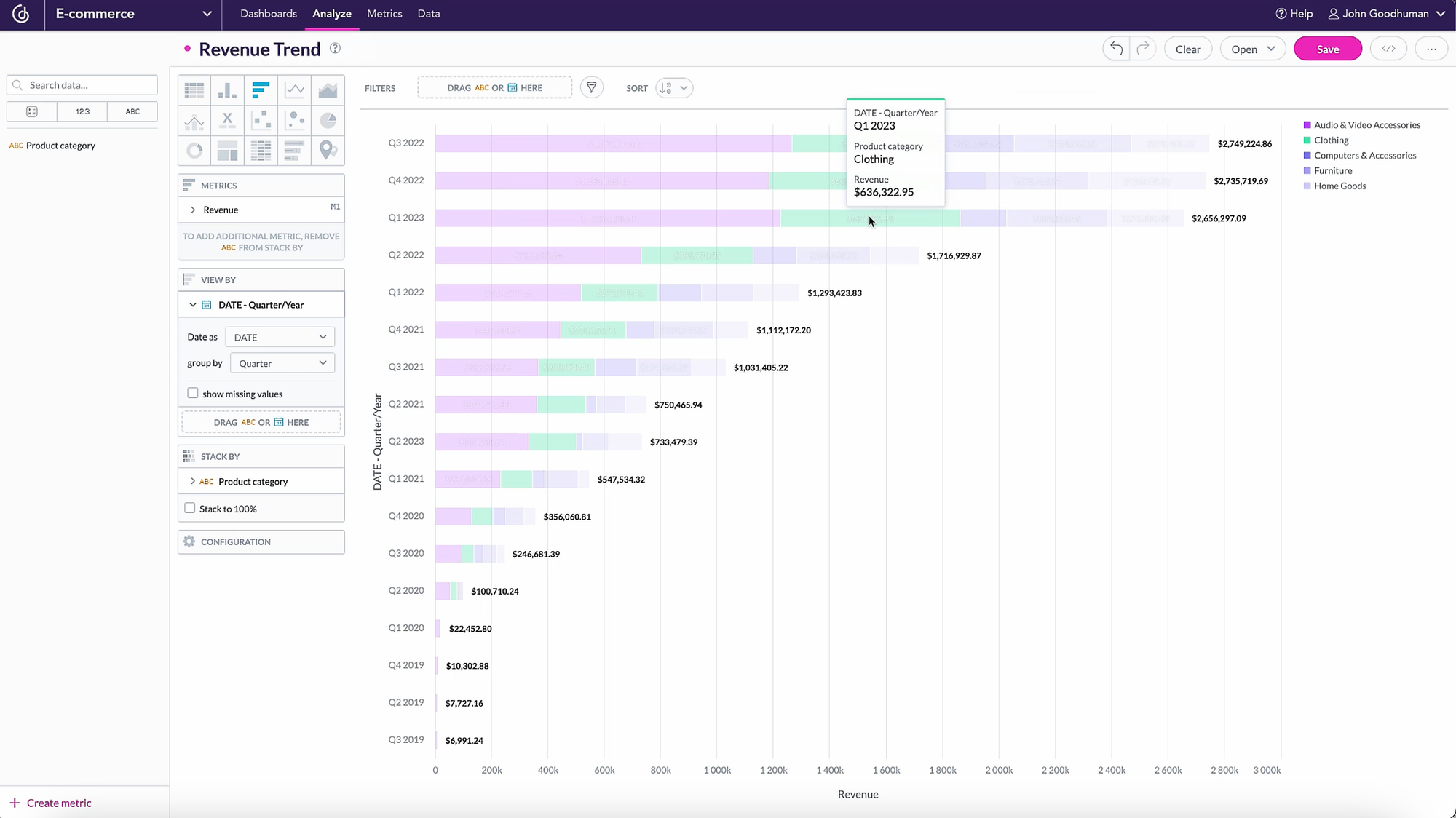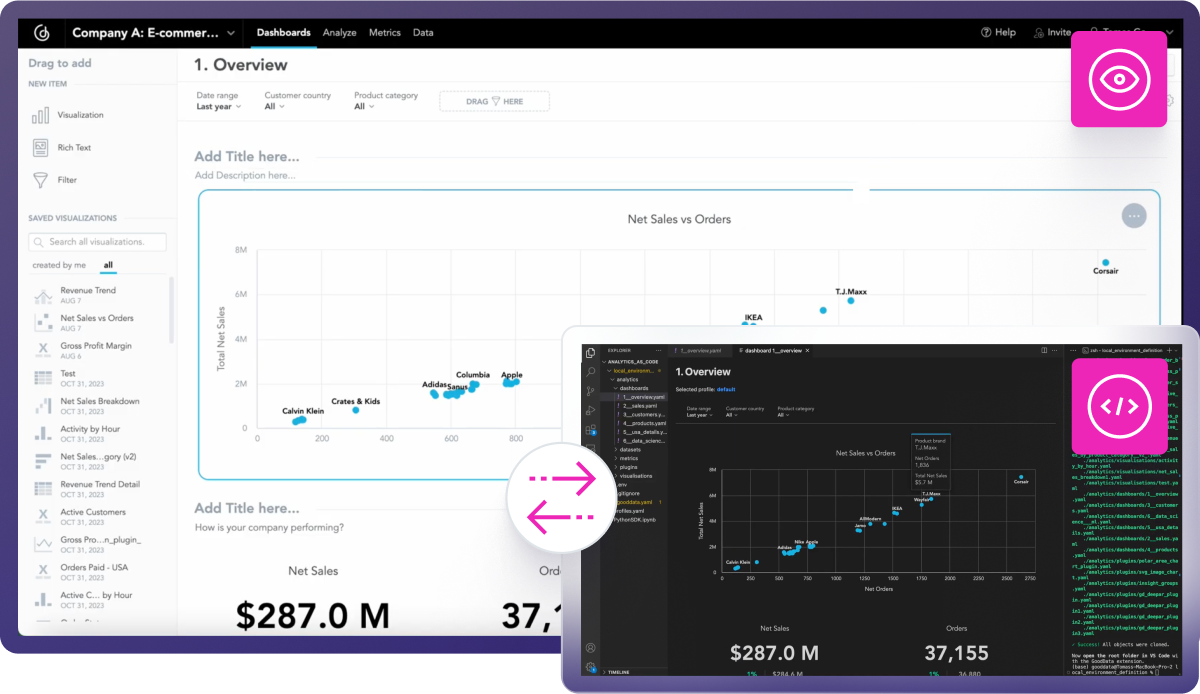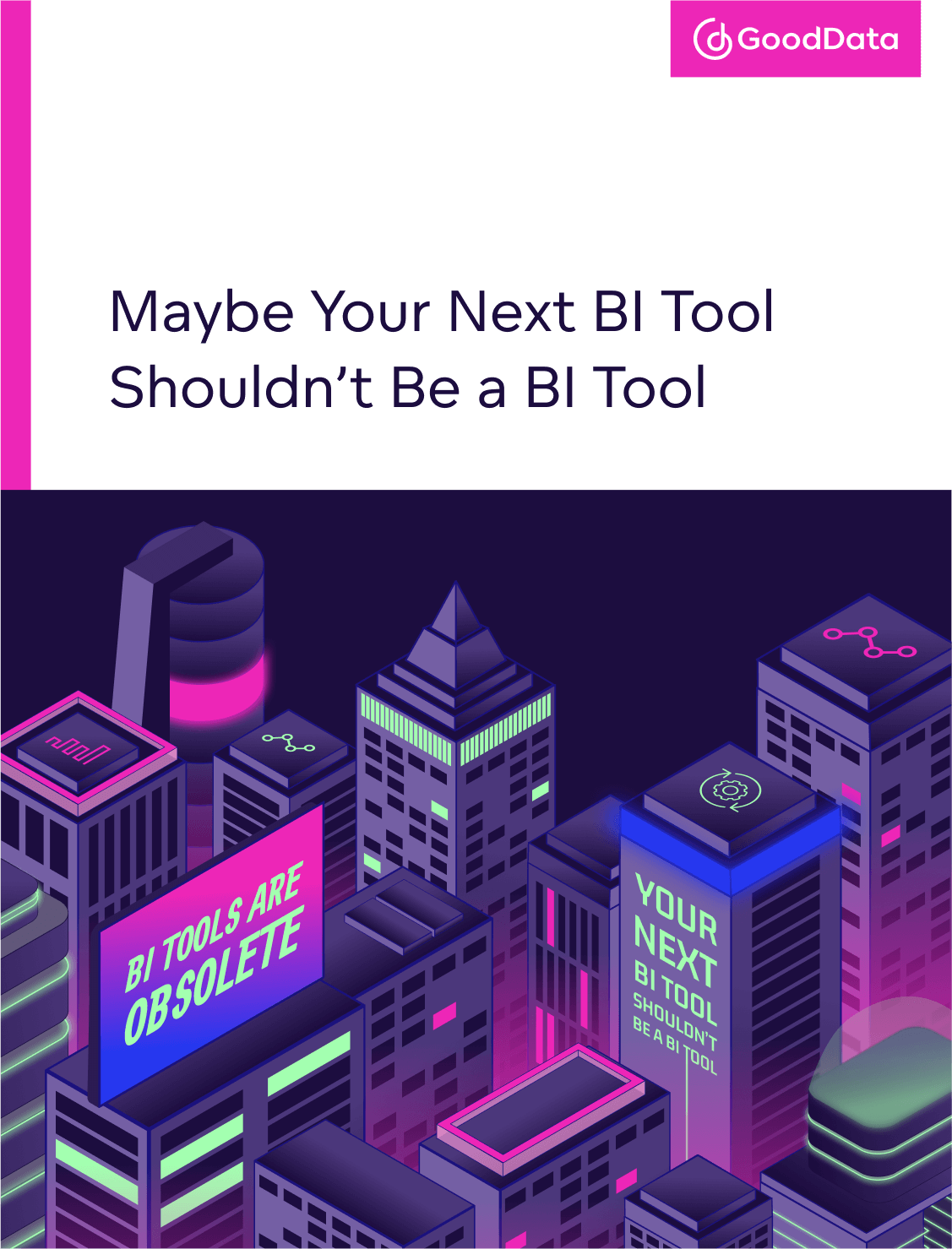The era of static dashboards and manual exports is over. To stay competitive, businesses now require AI, automation, and embedded analytics. Yet many traditional BI tools haven’t evolved to meet these needs. This paper explains why they often fall short and what you can gain by moving to a modern analytics platform.
1. BI Is Still Too Hard To Use
Many BI tools claim to be user-friendly, but they still require specialized training and technical expertise to provide value. Business users become frustrated when they face complex interfaces, slow answers, and the need to rely on data teams for reports.
Modern Analytics Platforms Are More User-Friendly
Today’s best platforms simplify analysis with features such as:
- Intuitive no-code interfaces: Business users can explore data without technical skills
- AI-powered insights: Automatically uncover trends and anomalies
- Simplified workflows: Reduce reliance on data analysts for every request

2. BI Tools Struggle to Keep Up with Your Tech Stack
Today’s businesses don’t operate in a one-size-fits-all tech environment. You’re likely running on AWS, Azure, or Google Cloud, but traditional BI tools often lack the flexibility to work with your current tooling. Data silos are created where information gets locked in separate systems, making it difficult to get a unified view of key metrics.
As a result, decision-making is delayed because teams struggle to easily access real-time insights, which hinders agility and responsiveness.
Modern Analytics Platforms Solve Integration Headaches
Unlike traditional BI tools, modern platforms integrate smoothly with your existing tech stack and eliminate workflow friction.
Modern Platforms:
- Work across all major cloud platforms
- Integrate with your existing data infrastructure
- Adapt to your evolving business needs
3. BI Tools Require Too Much Manual Work
BI tools weren’t designed for automation: they rely on manual report building, static dashboards, and slow refresh cycles. This creates a huge productivity gap because collaboration is complicated and data teams spend too much time on repetitive tasks.
Modern Analytics Platforms Lead With Automation
A modern analytics approach follows software development best practices. Today’s best analytics platforms leverage an ‘as code’ approach to efficiently maximize automation, collaboration, and governance.

4. BI Tools Struggle to Handle Growth
Traditional BI tools can be effective for small teams but show their limitations as a business grows. They tend to slow down when handling large datasets, making it harder to efficiently process and analyze information. They also become increasingly expensive as more users are added to the system. On top of that, manual optimization is often required to handle scaling, adding complexity and further straining resources
Modern Analytics Platforms Ensure Scalability
Thanks to automation and intelligent resource management, modern analytics solutions are built to handle a company’s growth:
- Automated scaling: No performance issues as data grows
- Cost optimization: Intelligent caching and processing to reduce expenses
- Multitenancy: Serve multiple users and customers efficiently
5. BI Tools Can’t Support All Your Data Use Cases
Your business probably needs to support a variety of data use cases: internal dashboards for different departments, embedded analytics for customer-facing reports within applications, and even hybrid or custom app development.
Unfortunately, most BI tools can’t handle all these needs in a single product, forcing you to invest in multiple tools.
Modern Analytics Platforms Cover All Your Bases
The best analytics platforms can handle multiple use cases. They are:
- Flexible enough to embed analytics wherever users need them
- Customizable to match specific business needs
6. BI Tools Are an Island
Sales teams want insights inside their CRM, finance teams want reports in their accounting software, and product teams want embedded analytics inside customer apps. But BI tools force users into a separate interface; they don’t integrate deeply into modern data stacks and lack API-driven workflows.
Modern Analytics Platform Fit Into Your Existing Workflows
A modern analytics approach eliminates the need for teams to log into separate systems by offering:
- Seamless embedding: Put insights directly where people work
- API-first architecture: Customize and automate workflows
- Automated data integration: No more manual exports and imports
What to Look for in Your Next Analytics Solution
Your next solution should do more than just display data, it should fit seamlessly into your workflow and actually make your job easier. That starts with the ability to embed analytics directly into any userface, so teams don’t have to waste time hopping between platforms for the information they need.
Your analytics platform should connect effortlessly to your data stack, letting you build end-to-end solutions from reusable components. If you add new tables to Snowflake, they should just appear in your analytics tool — no tedious setup required. APIs should make these integrations a breeze, and everything should be versionable via code, giving you full control. Need to add a custom, homegrown application? No problem — your platform should be flexible enough to handle that too.
Finally, a truly modern solution doesn’t just show you what’s happening with charts; it takes action. Imagine an analytics platform that not only tracks sales performance but automatically assigns new accounts to reps based on quota attainment. That’s the future of analytics — no manual work, no wasted time. And if you look beyond traditional BI, that future is already here!
How GoodData is Rethinking BI
We’re reimagining what’s possible with our “Three C” approach:
- Composability: Our platform is built for flexibility. We offer modular, efficient solutions that easily fit into your existing stack — because one-size-fits-all just doesn’t work anymore.
- Completeness: We are able to offer an end-to-end solution, where we provide everything you need to deploy, manage, and scale data products without relying on extra software.
- Co-creation: We believe in building with you, not for you. By working directly with our customers, we ensure the solution is tailored to your needs, creating a true partnership where we win together.
Ready to make the shift from traditional BI to a seamless, integrated data experience tailored to your business? Request a GoodData demo today.
Continue Reading This Article
Enjoy this article as well as all of our content.
Does GoodData look like the better fit?
Get a demo now and see for yourself. It’s commitment-free.











